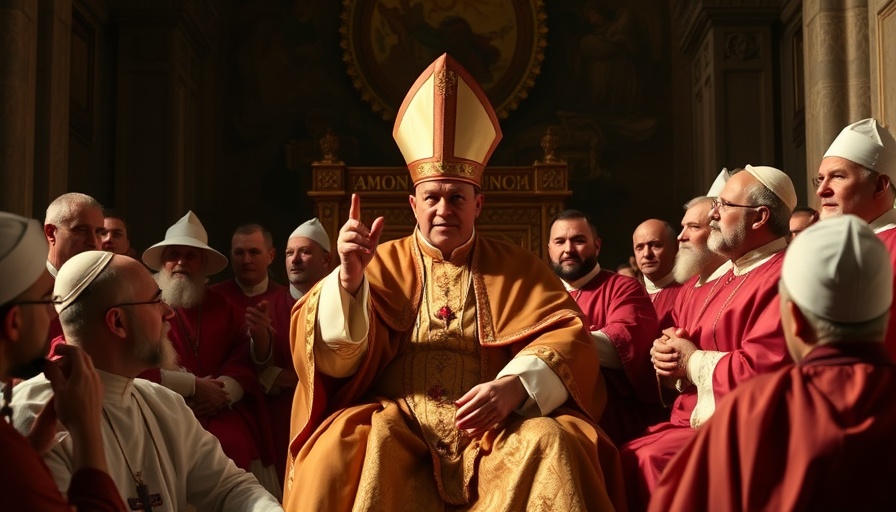
A Cinematic Preparation: How a Movie Became Part of Papal Tradition
The recent election of Pope Leo XIV, known as Cardinal Robert Francis Prevost, marked a significant moment in the Catholic Church's history, particularly as he became the first American pontiff. Interestingly, his preparation for the elevated role involved watching the film Conclave, a dramatization of the very process that led to his election. This revelation, shared by his brother John Prevost, highlights the intersection of modern media and historical traditions within the Vatican.
The Inspiration Behind 'Conclave'
Conclave, directed by Edward Berger, draws from the 2016 novel by Robert Harris, providing a fictional yet gripping interpretation of the papal election process. The film intricately depicts the high-stakes atmosphere of the Vatican, where a mix of politics, rivalries, and spiritual responsibilities converge. This portrayal not only entertained audiences but also served as an unexpected educational tool for those involved when Pope Leo XIV prepared for the momentous conclave.
Why Movies Matter in Modern Governance
Movies like Conclave often shape public perception and understanding of complex institutions like the Catholic Church. For digital nomads and culturally curious individuals, exploring how cinema influences real-world events is valuable. The idea of a future leader drawing lessons from a film echoes broader trends; leaders across sectors increasingly reference pop culture to connect with broader audiences.
A Modern Take on Ancient Traditions
The act of Cardinal Prevost watching Conclave shows an interesting blend of tradition with modernity. Historically, the Vatican has been seen as a bastion of ancient practices. Yet, as the church evolves, embracing technology, media, and fresh perspectives becomes essential. This shift not only resonates with its diverse global audience but also encourages younger generations to engage with its narratives.
Future Predictions: A Shift in Papal Elections
With the advent of new technologies and global communications, the way papal elections are perceived may change radically. If films continue to illuminate the human side of the Vatican, we could see more candidates following in Pope Leo XIV's footsteps, engaging with cultural expressions to ground their leadership in contemporary relevance.
What It Means for the Future of the Catholic Church
The election of Pope Leo XIV symbolizes a pivotal moment for the Catholic Church as it embraces leaders who resonate with modern communities. As cultural landscapes shift, the Church must navigate these transformations to safeguard its relevance while maintaining its core values. For travelers and cultural enthusiasts, observing these developments provides deeper insights into the complexities of not only the Vatican but also how global leaders take cues from society.
Engaging with Culture Through Film and Leadership
For digital nomads and culture aficionados, understanding the connection between film, media, and leadership can enhance travel experiences and cultural engagements. The preparation phase of Pope Leo XIV prompts reflection on how storytelling—through cinema—can foster understanding and connection between individuals and institutions. This relationship invites travelers to appreciate and immerse themselves in the cultures they encounter, recognizing how historical narratives shape present-day realities.
As you explore global cultures, consider engaging with local cinema and narratives that shape the communities you visit. These stories not only enrich your travel experience but also deepen your understanding of the historical contexts that influence modern society.
For more on how media intersects with culture and leadership, join our community of digital nomads and subscribe for insights that connect travel with meaningful experiences.
 Add Row
Add Row  Add
Add 




Write A Comment